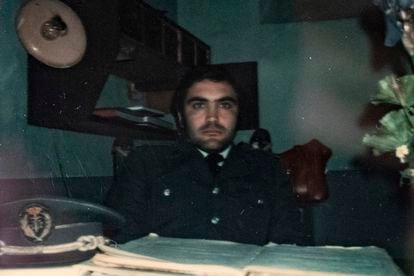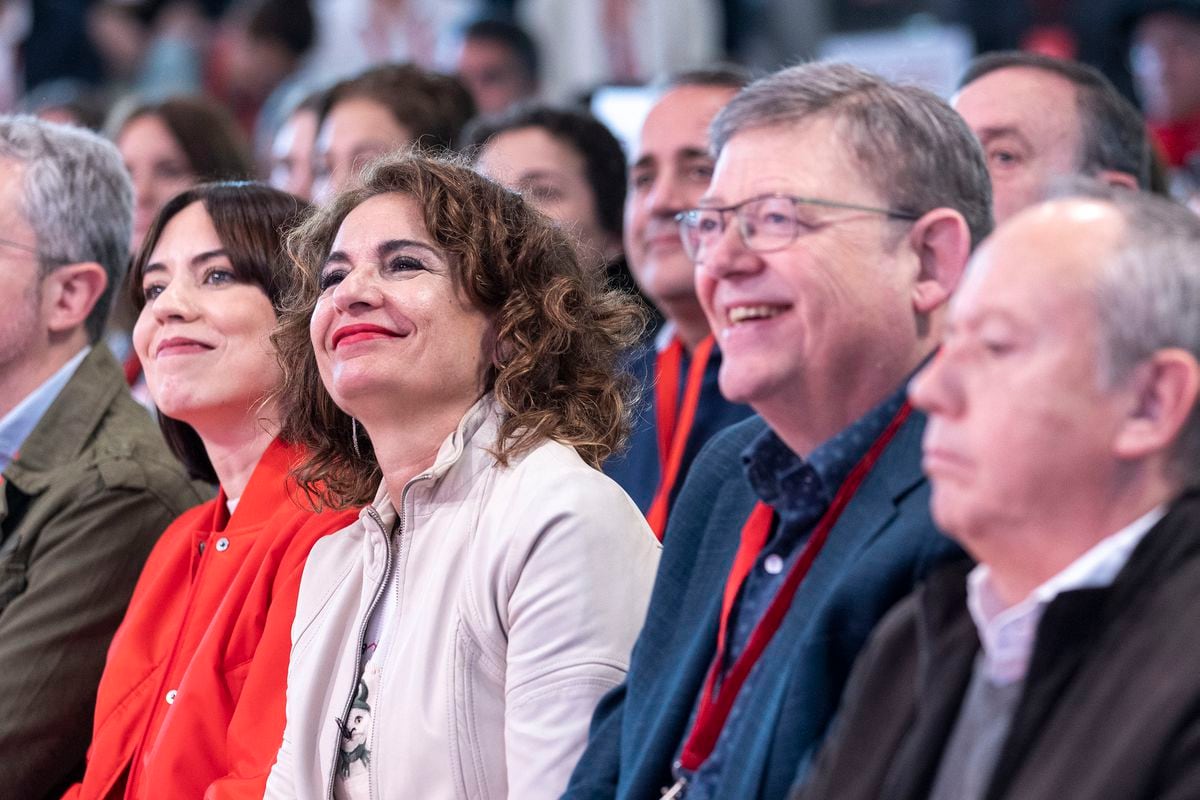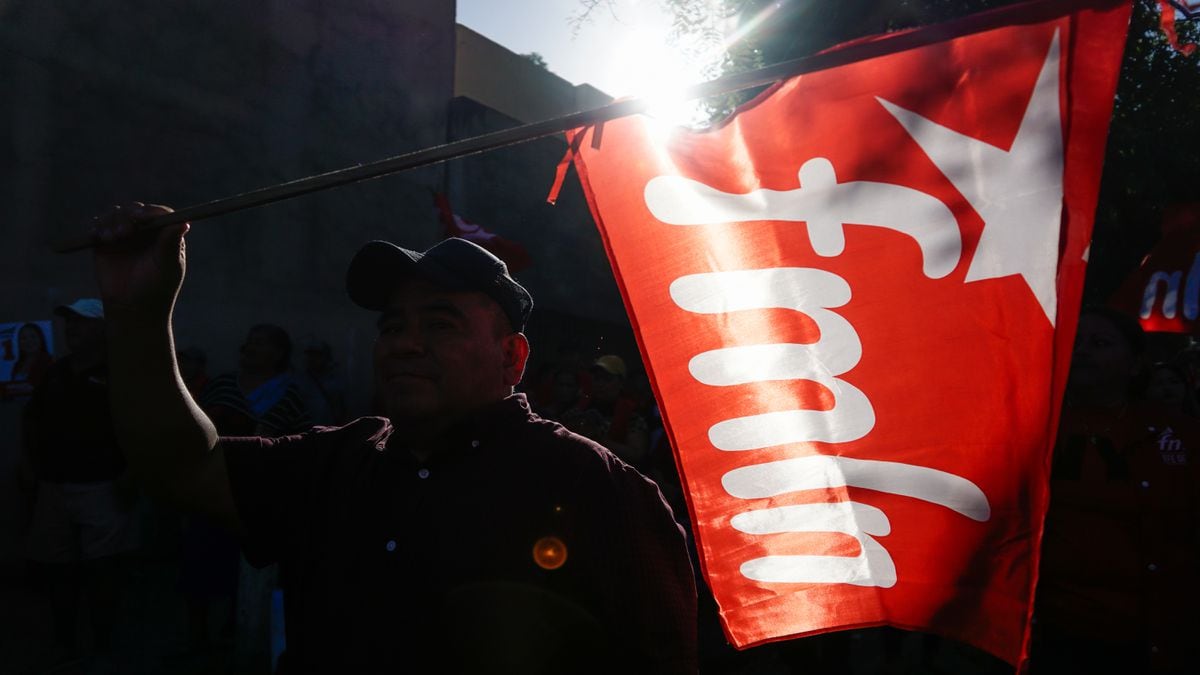Jesús Irurre has a basketball at home.
"I'm still pretty good at it," he says.
He now uses it mostly with his granddaughter, in the park just below his house.
It was also before a basket, but on a very different court, where he spoke for the first time with Salvador.
It was November 1973. He, a jailer, had arrived in Barcelona a few weeks earlier.
He was 23 years old and had two children.
Puig Antich had been in the Model for months.
He had been sentenced to death for killing a policeman and spent 23 hours a day in solitary confinement.
"What a bug," Jesus thought.
The court was made of gray cement, the walls were made of stone and there were bars on the ceiling.
Puig Antich was trying to score.
Irurre looked at him leaning against a wall.
Until the ball fell at his feet.
Salvador had failed.
He tried it.
He says that he doesn't remember if he scored or not.
The fact is that without really knowing how, they ended up playing basketball together.
The game gave way to words.
Salvador told him about his family and his doctor's brother who lived in the United States.
Jesus opened up to share concerns.
“My son does not read well.
He mixes up words”.
It's called dyslexia, Salvador told him.
“We have to correct it.
We are also trying to get him to stop being left-handed”.
They were both sitting on the bed.
Puig Antich told him that there was no need to correct that.
He told him about places where dyslexia was worked on with appropriate techniques and assured him that the boy could continue studying.
“Those were different times,” says Irurre, “but fortunately we listened to him.
My son is still left-handed.
He is an architect.
He has done well.”
Jesús began to lend him a small transistor radio at night.
And Salvador talked to him about the music he liked.
“Especially singer-songwriters.
For example, he introduced me to Patxi Andión, whom I have followed all my life”.
And he also discovered something fundamental.
Something that changed Jesus' life forever: books.
"I had many, I think one of them was
Erich Fromm
's Fear of Freedom ."
He bought it after Salvador's death.
After the dramatic dawn of March 2, 1974. “I will have it engraved in my mind all my life.
Cell 443. his mettle and strength.
The cries of the sisters.
His “
quinta putada, això is a putada
” when she saw the vile club.
The deathly silence of the next morning.
He sighs, drinks water and continues.
“I started yelling: 'Frank son of a bitch murderer, Franco son of a bitch!'
Two companions put me in a room.
'You've gone mad?'
they told me.
They managed to calm me down.
A few days later I told my wife that I was leaving him.
She had the feeling that she was participating in a macabre game.”
But instead of leaving work, he remembered a conversation with Puig Antich.
“There is a bookstore called
Leteradura
.
They have political texts, books prohibited by the regime…”.
So she walked to number 80 Passeig de Gràcia and started reading.
“First Fromm, then books on trade unions.
He read about the CNT, about anarchism.
He transformed me forever.”
He began to sound out his companions.
"The ones that didn't seem very Francoist," he adds.
And he spoke to them about the possibility of organizing.
He toured all the prisons in Spain to try to add followers.
And they created a clandestine national coordinator that would later become the first union of prison officers.
Irurre was its first general secretary.
He also joined the meetings organized by groups of criminal lawyers to push for prison reform.
And he hid a camera that journalist Xavier Vinader gave him to photograph the torture in prison.
"Now I can tell, nothing will happen to me."
A tiny device that captured what was happening within the four walls of a room known as
El Palomar
.
"A closed and padded cell where no screams were heard, where the prisoner could not bang his head against the wall and where their faces were sunk in buckets of water."
Those photographs were published in
Front Page
.
They caused a stir.
He keeps saving that cover.
He shows it to me in his apartment in Valencia, the city to which he moved after retiring in 2012. “He was 42 years old.
He was already tired.”
After the Model he had passed through Malaga and Ibiza.
They decided with his wife to move to Burjassot, where one of his sons lives.
And the most important, two granddaughters.
"It's what I enjoy the most right now."
It preserves many press clippings: prison escapes, riots, hunger strikes.
The life of Jesus gives for a book.
In fact he has begun to sort the memories.
And he says that he wants to make a story about his life, and at the same time, about the prisons of Spain.
“And I am aware that what marked my life was gallery number 5 of the Model, and having met Salvador.
Because I had an image of anarchists that he changed, because he encouraged me to read books.
And because I, who lived without ideology, without questioning the regime, I realized that everything had a political meaning”.
You can follow EL PAÍS Catalunya on
and
, or sign up here to receive
our weekly newsletter
50% off
Subscribe to continue reading
read without limits
Keep reading
I'm already a subscriber



/cloudfront-eu-central-1.images.arcpublishing.com/prisa/CAHSVQLJ3BG67CVS2AKJQBHDCM.JPG)

/cloudfront-eu-central-1.images.arcpublishing.com/prisa/ZHBM2UJTXJEMFAJJLPXP2OGBRQ.jpg)


